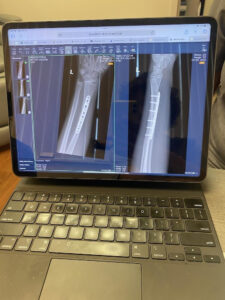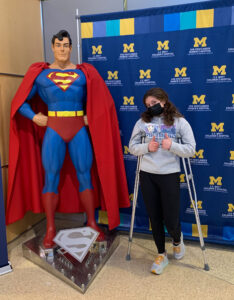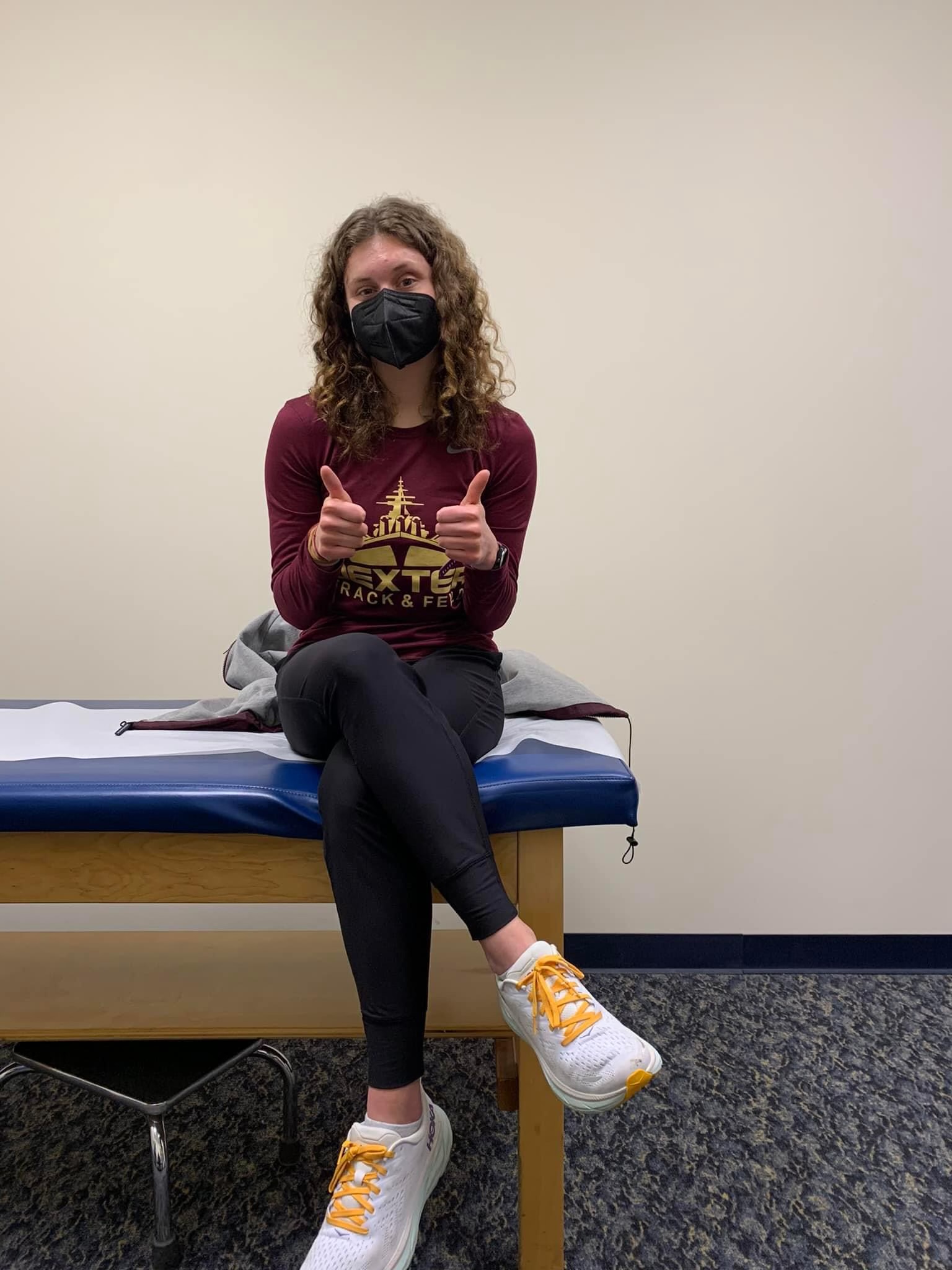Injuries big or small take a toll on your mental health and outlook on life. Big, season-ending injuries are not unheard of amongst student-athletes at DHS. These injuries and the recovery process has a strong affect on some athlete’s mental health.
By: Madison Winters
Senior soccer player Vaughn Meyer snapped his radius after falling on his arm while playing soccer this past fall. Meyer now has five screws and a plate in his arm. Eventually, he started physical therapy daily to gain strength and motion back in his arm. The recovery process took around six to eight weeks. Vaughn tried to maintain a positive mindset.
“It was hard at first, to say the least,” Meyer said, “Knowing that it was my senior year and it was the end of the season, I knew I wouldn’t be able to play high school soccer again. The injury happened during our first district game, so I had to watch the rest of the tournament without being able to play.”

The men’s soccer team went on to win the district title for the first time in five years.
“Seeing my teammates succeed made the whole thing worth it,” he continued.
Being there to support his team encouraged Vaughn to work even harder to get back to the sport he loved.
There are many ways athletes deal with this mental toll from an injury, and Meyer decided to turn to his faith.
“I just tried to keep my faith in God in my head, so that I didn’t forget that this happened for a reason,” he said, “I knew that it was all a part of God’s plan and that in the end, I would eventually be back to the sport.”
Kate Varitek, senior cross country and track runner, also suffered an injury ending her senior season.
“Back in March of my junior year, I got a stress fracture in my left femur,” Vartitek explained. “My doctors and I honestly don’t know exactly how it happened because it is a really hard bone to break, but it happened overall from overwork and undereating,” she continued.
Due to the type of injury there isn’t anything that can be done to help it heal faster. Vartiek’s physical therapy was “all about trying to avoid these things from happening in the future,” she said. With any injury keeping you from competing for months comes a mental toll.

the lobby of the University of Michigan’s C.S. Mott Children’s Hospital.
“It was really hard to put in months of hard effort just to have it completely stripped away and not even step on the track once all season,” Varitek stated.
Like many injuries, Varitek was a bit shell shocked initially. “It was really hard at the beginning,” she said.
After the initial shock wore off, she was able to learn what the season would look like for her. She settled into the captain position and took on more of a leadership role. Since she couldn’t run, Varitek began working behind the scenes to help run the meets. The free time also gave her time to find new interests and further those she already had.
“The injury allowed me to have time to do my other hobbies, like performing, with both forensics and then auditioning for a musical in May,” Vatierk stated.
Along with finding these new hobbies came a new mindset.
“I can’t just rely on one thing because when that falls through you are left with nothing,” she said.
This encouraged Kate to explore other things while still working to get back to running.
“I reminded myself that it was only a temporary time,” she explained, “On top of that, I realized that my health was more important than a sport and that pushing myself to an unhealthy limit can have effects for the rest of my life.”
As she progresses in her recovery, Varitek is now back to running five days a week and on a mileage program.
Sophomore Ellie Taylor has had a similar experience while playing volleyball. Taylor suffered a stress fracture in her L-5 vertebrae. The injury was discovered after MRIs.
“I have not yet returned to volleyball fully, but I am starting to lift and play a little,” Taylor explained after spending six months in physical therapy.
“It was honestly really hard to watch my team play without me. It was hard to navigate being a good leader and teammate without being on the court,” Taylor stated. “I just tried to show up for my team and help them by being there and being their
biggest cheerleader.”

 The time off of the court allowed her to realize just how much she loved playing.
The time off of the court allowed her to realize just how much she loved playing.
“I would just try to remind myself that this is the only way I will ever get to go back on the court in the future, although it’s hard not to be playing right now,” she said.
Injuries don’t last forever, and regardless of how much it sucks in the moment, it is only temporary. It is important, as Meyer, Taylor, and Varitek show, to find a truly supportive support system and maintain a mindset that it will all work out in the end.

